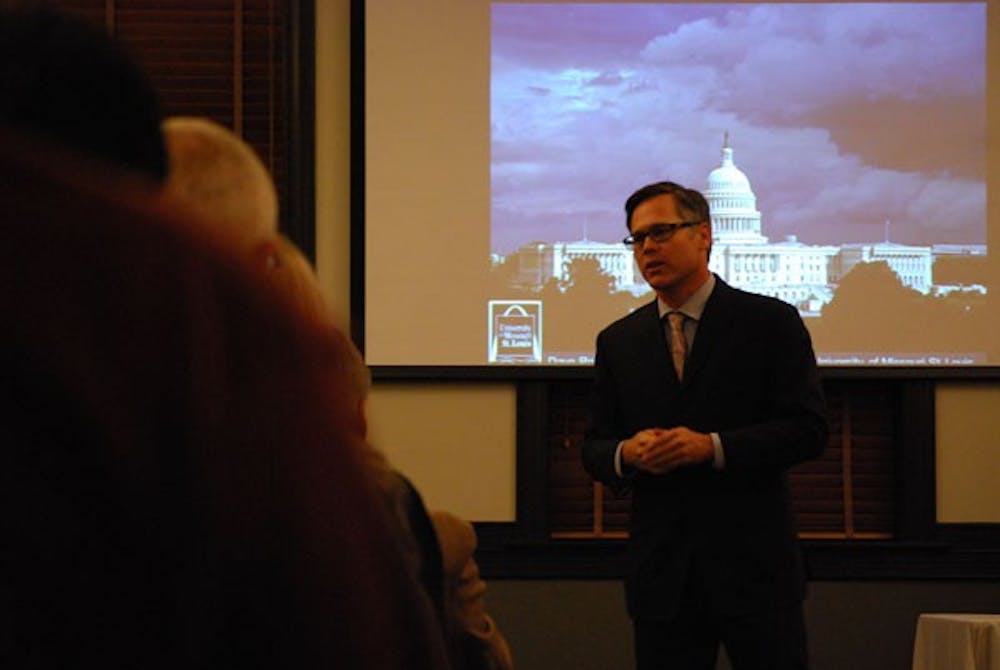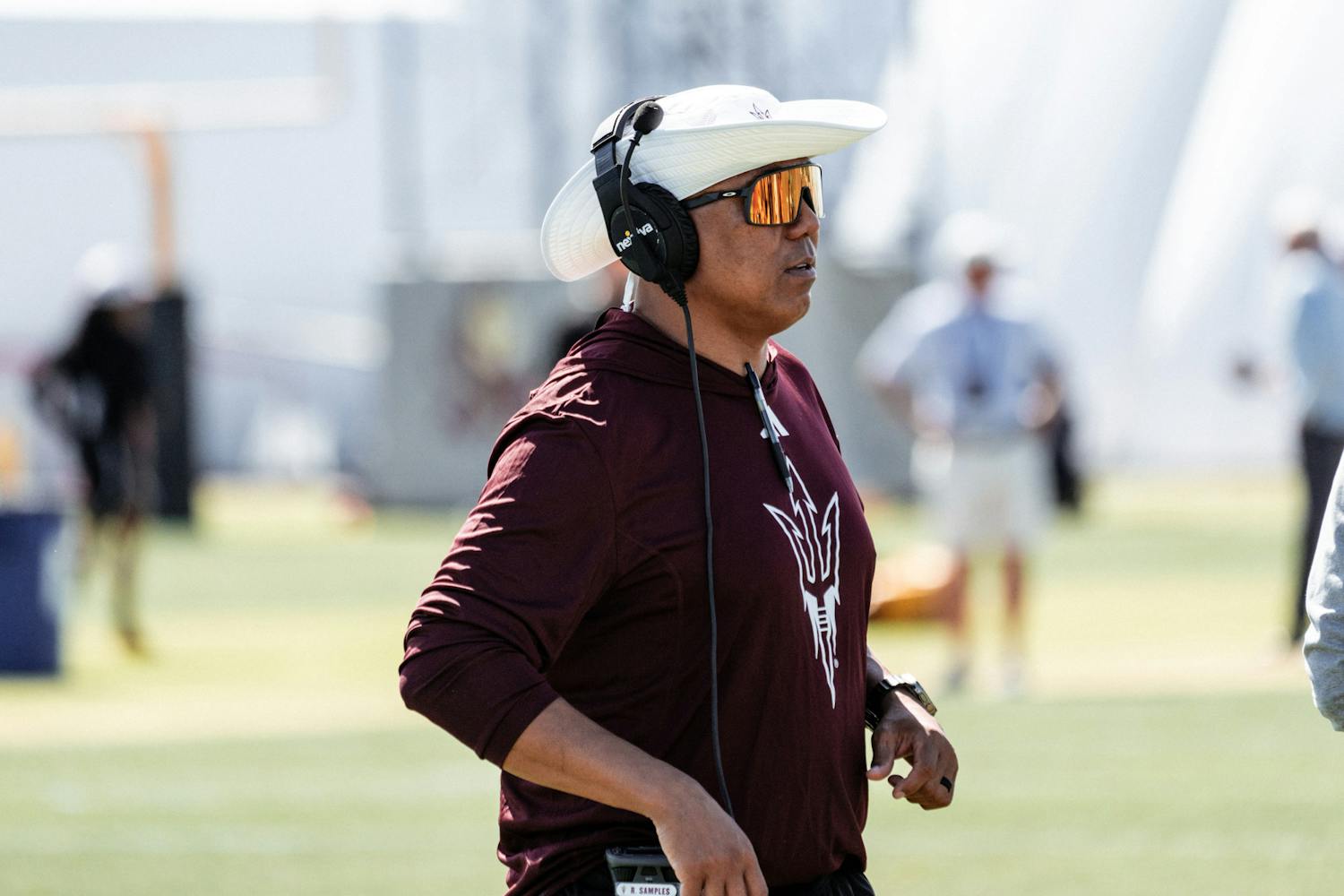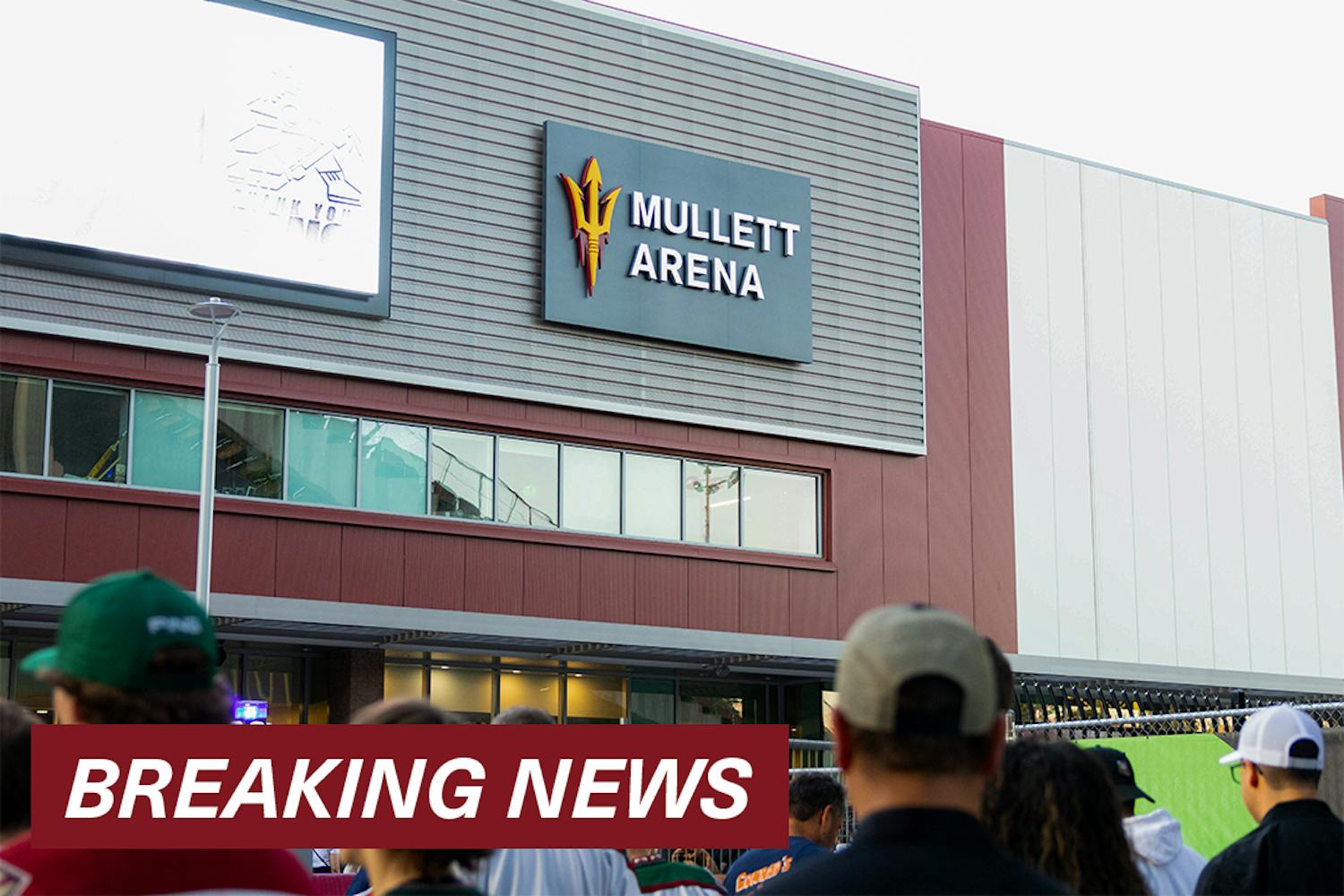 Matt Garcia, director of the School of Historical, Philosophical and Religious Studies, introduces a discussion on the 2012 election during a forum on the Tempe campus Thursday night. (Photo by Murphy Bannerman)
Matt Garcia, director of the School of Historical, Philosophical and Religious Studies, introduces a discussion on the 2012 election during a forum on the Tempe campus Thursday night. (Photo by Murphy Bannerman)A group of political analysts speculated about the outcome of Tuesday’s general election during an event on the Tempe campus Thursday night.
ASU political science professor Patrick Kenney, Arizona Republic political writer Robert Robb and University of Missouri political science professor David Robertson discussed the factors that will influence the results of the presidential, congressional and local Arizona elections.
Robertson examined statistics from past presidential elections and current poll results to analyze the probable outcome of a race that has become incredibly close in the past couple of weeks.
According to polls averaged by RealClearPolitics, President Barack Obama and Republican challenger Mitt Romney are basically tied, with Obama 0.1 percent in the lead as of Oct. 31.
“(The election) is going to be won by the Electoral College,” Robertson said.
Obama has a 2-1 chance of winning, but that could change in an instant, Robertson said.
“It’s not going to take much for Romney to catch up,” he said.
The floundering U.S. economy is not bad enough compared to previous elections to cost Obama the victory, Robertson said.
“Things aren’t going well enough for the incumbent to coast to victory,” he said.
Romney experienced a surge that put him squarely in the running after the first presidential debate, Roberston said.
The election will depend on key swing states like Ohio, he said.
Kenney talked about congressional races nationwide.
Because of the way the U.S. government is designed, the House and Senate elections are just as important as the presidential race in determining political policy, Kenney said.
“Almost nothing can be done without the two working in tandem,” he said.
This has caused the intense political gridlock of the last two years since the 2010 elections where “no significant legislation passed,” Kenney said.
He said he expects Congress to remain divided, with Democrats holding the Senate and Republicans retaining a majority in the House of Representatives.
Kenney said Arizona’s nine Congressional districts are split almost evenly between Republicans and Democrats, with Tempe’s 9th District race between Republican candidate Vernon Parker and Democratic nominee, former Sen. Kyrsten Sinema, D-Phoenix, being the hardest to predict.
“It’s probably too close to call,” Kenney said.
House races are especially hard to predict because of a lack of available polling data.
Robb talked about how Arizona’s changing political demographics may affect local election outcomes.
Arizona is in the process of turning into a more competitive purple state, Robb said.
While there has been much discussion about the impact of the rising Latino vote, Robb said he does not foresee it having a large influence in this election.
“The surge in Latino registration doesn’t exist,” he said.
Arizona has an increasingly large number of Independent voters, and the party that can attract the most cross-over will win most of the elections, Robb said.
“When it comes to attracting cross-over votes, Republicans have a structural advantage,” he said.
In regard to the Senate race between former Surgeon General Dr. Richard Carmona and Rep. Jeff Flake, R-Snowflake, Robb said he thinks Flake will win based on voter demographics and past voter turnout in favor of Republicans.
“It will be a remarkable achievement if Carmona wins the race,” Robb said.
Conversely, he said Democrats have the advantage in the Parker-Sinema House race.
Political science freshman Ben Miller, who attended the event, said the scientific and logical reasoning behind the panelists’ positions impressed him.
Miller is registered as an independent because he does not want to choose a political side.
“I want the facts to speak for themselves,” Miller said.
The discussion was the third in a series about the 2012 election sponsored by the the School of Historical, Philosophical and Religious Studies in the College of Liberal Arts and Sciences.
Correction: An earlier version of this article's photo caption misidentified Matt Garcia. It has been updated to reflect the correct information.
Clarification: The series of debates were sponsored by the School of Historical, Philosophical and Religious Studies, which is under the College of Liberal Arts and Sciences. It has been updated to more clearly reflect that.
Reach the reporter at tnhoman@asu.edu




